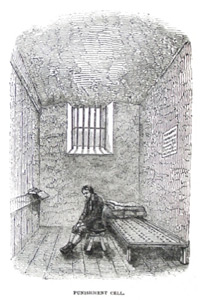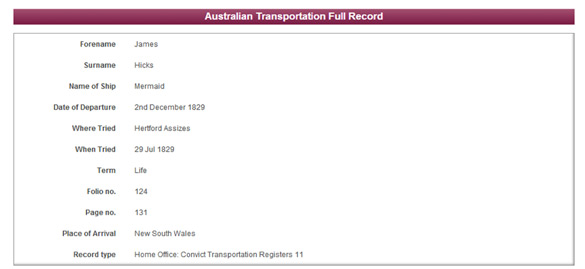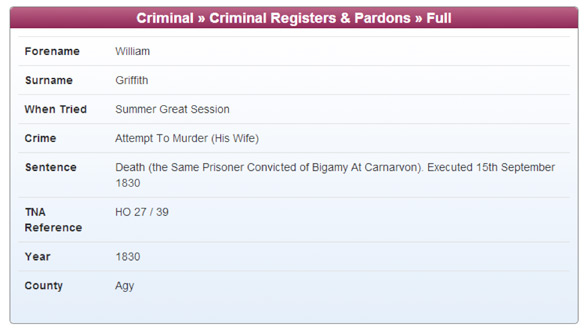The following was received from David Osborne with TheGenealogist.co.uk:

This unique collection contains Criminal Registers, Prisoners Pardoned, Criminal Lunatics and criminal charges for England and Wales.
In the 1800s it could be hard to earn an honest living and those that didn’t could face severe penalties which included death or transportation.
The new collection of Criminal Records available as part of the Diamond subscription package on TheGenealogist may help shed light on a family relative who seemingly vanished.
These records from the National Archives Home Office Records series HO 27, HO 13, HO20/13 and CRIM 1 contain over 90,000 records for England and Wales between 1782 to 1970.
This creates a significant collection of Transportation and Convict Records on TG of nearly 500,000 records

This Contains convicts and transportation registers from 1787 to 1870, with nearly 400,000 records from HO10 and HO11.
The new record sets also uniquely feature those people who were ‘pardoned’ by the courts and also those on trial who were regarded as ‘Criminal Lunatics’. The Criminal Lunatic Act of 1800 was introduced for the indefinite detention of mentally ill offenders, beforehand, they were simply set free if they pleaded insane!
In the 1800s, around 35% of people were found ‘not guilty’ by the courts, a higher rate than today, so chances are you may find a relative in the useful record sets of prisoners pardoned on TheGenealogist.
Despite there being no police force until 1829, there were more than 200 offences which carried the death penalty under the ‘Bloody Code’ of justice. As well as the expected serious crimes such as murder, you could be sentenced to death for stealing from a rabbit warren, impersonating a Chelsea Pensioner, being in the company of gypsies for a month, stealing livestock, being a pickpocket and also being seen out at night with a ‘blackened face’, as it was assumed you were a burglar.
Many death sentences were commuted to imprisonment or transportation to the colonies. Therefore, it’s now possible to find your ancestor in the criminal records and then find if they were transported to the colonies, all listed on TheGenealogist, with the name of the ship they travelled on. Records show the transportation of one man for seven years for stealing onions and another transported to New South Wales for a term of seven years for stealing table linen!

Mark Bayley, Head of Development at TheGenealogist comments:
”Our criminal records have a great unique element to them by also featuring those pardoned and those classed at the time as ‘criminal lunatics’. Combined with our transportation records it’s possible to discover an unfortunate ancestor and follow the chain of events as they suffered the harshest punishments for often the most minor crimes.”
Death sentences for stealing were common
James Hicks, born in 1804 is another example. He was convicted of stealing two lambs worth 40 shillings at Hertford Assizes, along with three other men. In 1829 this was considered a capital crime and he was initially sentenced to death. But six days later this was commuted to life transportation and he found himself on board a ship, the Mermaid, with nearly 200 other men. TheGenealogist has a copy of this record:

An example of a high profile criminal case listed on TheGenealogist involved William Griffith, who was the first man to be hanged at the new Beaumaris Prison in 1830, for the attempted murder of his wife, Mary. Separated from his wife, he had visited her where she lived with their daughter and he had then become extremely violent. The dreadful nature of the attack ensured he was given the death penalty and a big crowd gathered at his execution too.

You can find both the criminal records along with the transportation records under the “Court & Criminal” section, you can also search the entire Court & Criminal collection using the Master Search.